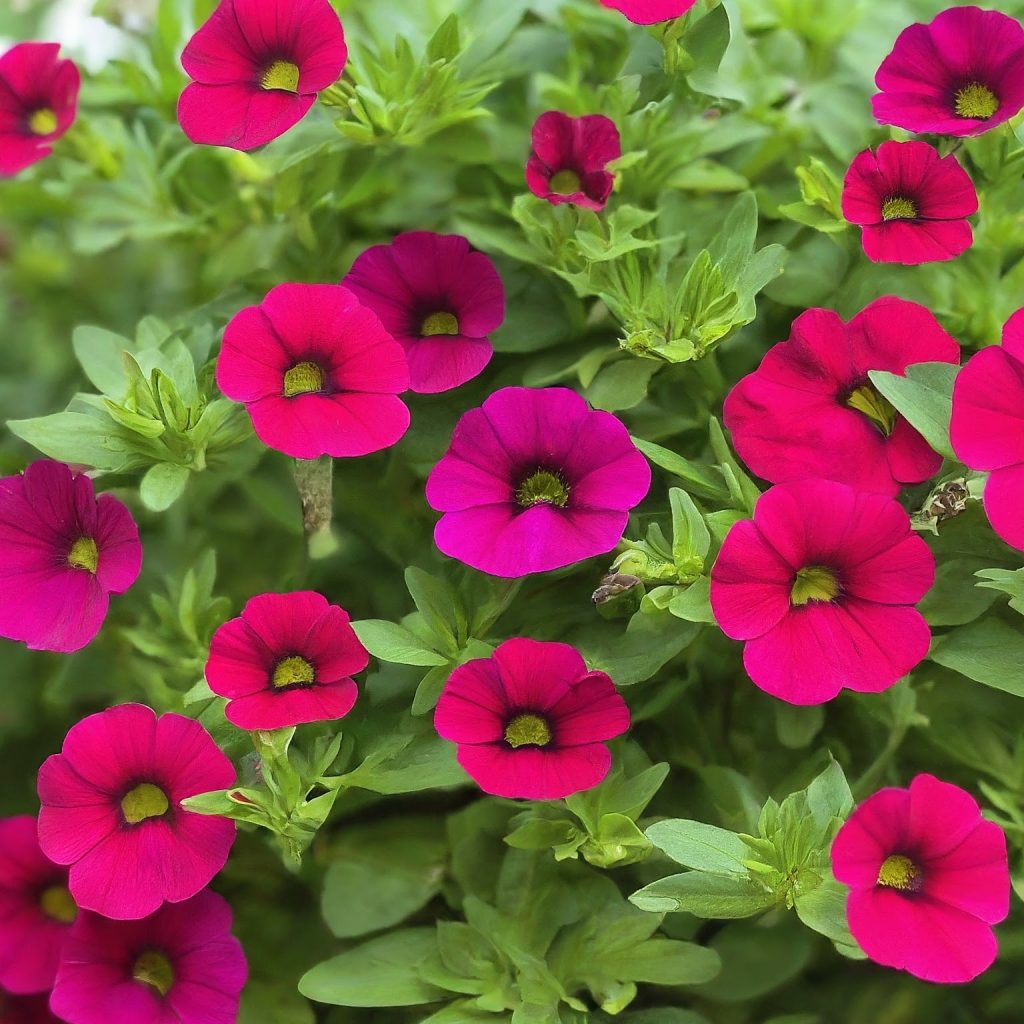All Posts
PLANT & CARE FOR PETUNIA
Petunia flowers, with their bright, trumpet-shaped blooms and wide array of colors, are a beloved staple in gardens around the world. Known for their versatility and resilience, petunias can enhance any landscape with their vivid hues and lush growth. Whether planted in hanging baskets, window boxes, or garden beds, these charming flowers bring a splash of color and a touch of elegance to any setting. Easy to care for and capable of flourishing in various environments, petunias are a gardener’s delight, promising a season full of vibrant blossoms and minimal hassle. In this article, we will explore the essentials of growing and maintaining petunia flowers, ensuring your garden is bursting with their cheerful beauty.
Basic Introduction to Petunia Flowers
Are petunias perennials or annuals?
Petunias are classified as tender perennials. However, because they cannot tolerate frost, they are commonly grown as annuals in most climates.
Exposure:
Full sun
Bloom time:
Summer
HOW TO PLANT PETUNIAS
When to plant:
Plant petunias in the spring after the threat of frost has passed.
Where to plant:
For the best performance, plant petunias in full sun, ensuring they receive at least six hours of sunlight daily. While they can tolerate some shade, they may not flower as prolifically.
Soil:
Petunias thrive in light, fertile soil that provides good drainage and is slightly acidic (pH 6 to 6.5). In heavy clay soils, work some compost or other organic matter into the ground before planting. When planting in containers, use a free-draining soilless potting mix fortified with a slow-release fertilizer.
Grow petunias from seed:
If you’re after a specific variety not available as a transplant, you can grow petunias from seed. Because petunia seeds are very tiny and slow to germinate, you’ll have better success starting the seeds indoors 8 to 10 weeks before the last frost date in your area and transplanting the seedlings into the garden once the soil warms up.
PETUNIA CARE
Watering:
Consistent Moisture: Keep the soil consistently moist but not waterlogged. Water at the base to avoid wetting the foliage.
Mulching: Apply mulch around the plants to retain moisture and control weeds.
Feeding:
Fertilization: Use a balanced, water-soluble fertilizer every two weeks. A 10-10-10 or 20-20-20 formula works well.
Slow-Release Fertilizer: Alternatively, a slow-release fertilizer can be applied at planting time.
Pruning and Deadheading:
Deadheading: Regularly remove spent blooms to encourage new flower production.
Pinching Back: Pinch back the stems to promote bushier growth and prevent legginess.
Support Structures:
Stakes and Cages: For taller varieties, use stakes or plant cages to support the stems.
Plant Trellises: Use small trellises for climbing petunias or spreading varieties.
Pest and Disease Control:
Inspect Regularly: Check plants regularly for pests like aphids or spider mites.
Natural Remedies: Use insecticidal soap or neem oil for pest control.
Disease Prevention: Ensure good air circulation and avoid overhead watering to prevent fungal diseases.
Winter Care:
Bring Indoors: In colder climates, petunias can be brought indoors before the first frost.
Cuttings: Take cuttings from healthy plants to propagate new ones for the next season.
Ideas for Using Petunias in the Landscape
Petunias are very popular flowers for adding instant color to a garden. They are incredibly versatile and can be used in many ways. Here are some ideas:
Seasonal Landscape Beds:
Plant petunias as colorful additions to seasonal landscape beds for vibrant displays throughout the summer.
Hanging Baskets and Window Boxes:
Grow them individually in hanging baskets and window boxes. They also pair well with other strong growers for a stunning effect.
Container Gardens:
Use petunias in containers as the filler or spiller component to create dynamic and eye-catching arrangements.
Mass Plantings:
Plant petunias in masses for a dramatic blanket of color, perfect for making a bold statement in your garden.
Ground Cover:
Use petunias to cover bare spots in your garden quickly and effectively, which also helps prevent weeds.
By following these tips and ideas, you can make the most of petunia flowers in your garden, enjoying their vibrant colors and easy care throughout the growing season.

